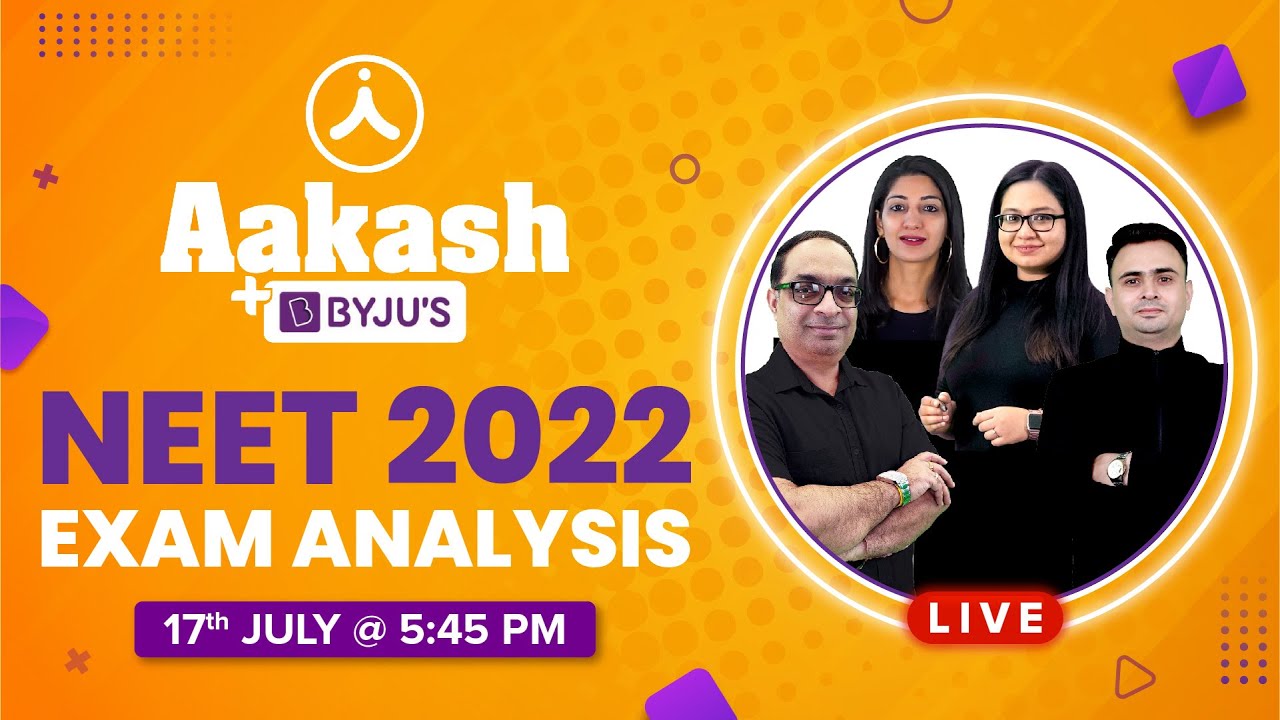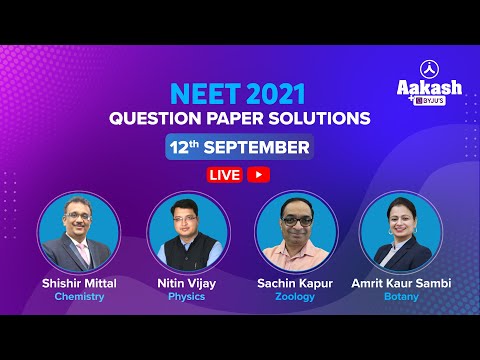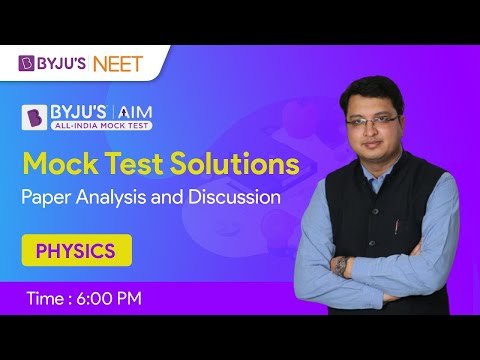With exams being just around the corner, students are leaving no stone unturned to make the most of the time and give their best to get that perfect score. If one desires to enter a good college, securing 600+ marks is imperative and this can be achieved if one scores above 170+ in the Physics section of NEET exams.

Often considered as the most challenging section, NEET Physics draws flak, becoming troublesome for most students. The fear is due to lack of preparation or not being fast enough to solve questions, as technically, within seconds, students are expected to understand the question, recall the right formula, some calculations and arrive at the right answer – this is time-consuming. But there are no shortcuts to this except that one has to practice and improve speed and accuracy.

See also: Important notes for NEET
Approximately 16 lakh students are said to appear for NEET. Given this, what would provide a student with an edge over others is the application of theoretical knowledge to questions while maintaining accuracy and speed. NEET is carried out in the offline mode by the NTA across India. It enables students to seek admissions to medical courses after appearing in the class 12 exams.
Foolproof Plan To Score 170+ In NEET 2022 Physics
In order to score above 170 marks in the Physics section, one has to get at least 43 out of 45 questions correct. It is certainly possible with practice and sheer dedication. Here, with this article, we bring to you a list of steps that you must include if you wish to score above 170+ in the Physics section.
I. Set up a plan
The most important step in the list is formulating a plan only to ensure it is executed. For this, one has to set up realistic goals. Paste it around the study corner you pick, which is typically a secluded corner of your place.
Physics requires extensive practice sessions, let your plan revolve around this fact while equally dividing time between other sections as well.
II. Thorough With The Pattern
Students must master the pattern of the exam, different sections, marking scheme, understanding and gauging the difficulty level of a question, and much more. This is a topper’s tip, which you can make note of.
Also, students can make note that in NEET 2019, 22 questions were asked from Class 11, while 23 questions were asked from class 12 physics syllabus. Likewise, NEET 2020 witnessed 18 questions appearing from class 11 while 27 questions appeared from the class 12 Physics syllabus. This weightage fluctuates, but the NEET syllabus from both classes must be given equal attention.
III. Right Mix of Books
Picking the right book is a task for many students, but know that NCERT must be your go-to. There are tons of books out there by different publishers, but don’t let that tempt you. In the quest of learning more, students tend to refer to multiple sources and hence jumble up information provided in different books for the same topic which may have repercussions.
Once you have mastered NCERT, you can refer to previous years’ question papers collated altogether in a single book, available in the markets. Additionally, you may refer to different modules available online and solve questions. Apart from this, go through these reference books for Physics:
- Concepts of physics – HC Verma
- Objective NEET Physics – DC Pandey
You may also be interested in: NEET Preparation Tips
IV. Find out Important Concepts & Focus
Once you have set up a plan, are equipped with pattern knowledge, and know the right books, you should be aware of the most important concepts from which NEET questions appear. Here are some statistics from NEET which can assist you:
| Class | Chapter name | Weightage (approximate) |
|
Class 11
|
Mechanics | 27% |
| Heat & Thermodynamics | 11% | |
| Waves | 2% | |
|
Class 12
|
Magnetism | 14% |
| Modern Physics | 18% | |
| Electricity | 20% | |
| Optics | 8% |
Some important topics that must be covered:
- Heat & Thermodynamics
- Rotational motion
- Modern physics
- SHM & Waves
- Ray optics
- Electronics
Based on two factors we can decide the importance of the above-mentioned topics, they are:
- Difficulty level
- Frequency of questions from previous years’
This table provides insights into topics that must be covered-
| Must-do (High impact) Chapters | Moderate impact | Low impact |
| Dual nature of matter | Motion in one dimension | Thermodynamics |
| Atoms & nuclei | Motion in two dimension | Oscillations |
| Semiconductor | Laws of motion | Electromagnetic induction |
| Wave optics | Work, power & energy | Moving charges & magnetism |
| EM Wave | Electric charges & field | Ray optics |
| AC, Current & Electricity | Electrostatics | Fluids |
| Magnetism & Magnetic effect | Rotational motion | |
| Units & dimensions | ||
| Thermal properties of matter | ||
| Kinetic theory of gases | ||
| Gravitation & solids |
Note: The list indicates the important topics which must be prioritized. Ensure to cover other topics covered in the syllabus too. They carry weightage and must be studied to crack the Physics section successfully.
Don’t miss: NEET Physics weightage
V. Smart work over hard work
Once you have mastered the NCERT syllabus, move to solve previous years’ questions, different modules. After reading a chapter, cover all the MCQs appearing in previous years’ papers and sample papers.
Do not memorize formulae, rather go back to its derivation and understand it. This will help you solve problems easily and help with better comprehending questions.
Apart from reading NCERT for numericals, it can also be referred to for its theory. Additionally, focus on the units of numericals, as accuracy here matters.
Also Check: NEET Physics MCQs
VI. Practice and Repeat
Physics demands rigorous practice. Regular practice will help you decode recurring topics, the pattern of the questions, the art of how questions are tweaked around topics, above all, it enhances your levels of speed and accuracy which are the most important metrics in competitive exams such as NEET.
Practising questions also help students to understand the difficulty level of questions, hence giving them confidence which only gets them surplus time at the exam hence propels confidence level. Always remember to solve mock tests under ideal exam scenarios. Every time you take up this test, take it up with the same intention which you would have while giving the actual NEET exam.
You might like: Quiz videos on NEET for 2022
Visit BYJU’S for more on NEET and stay updated.
Further Reading: NEET Study Material


it is more helpful to me this is a good platform for ths students who preparing for competative exams